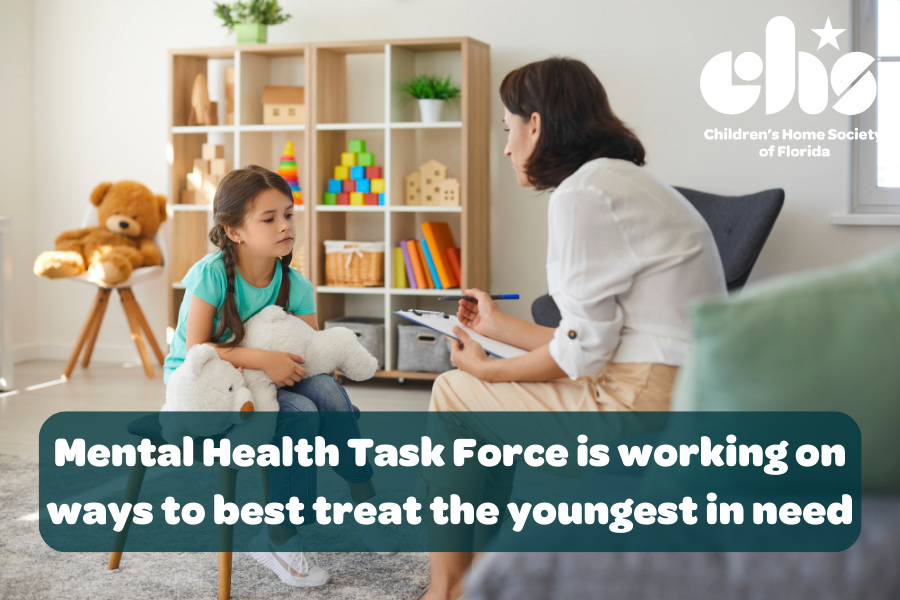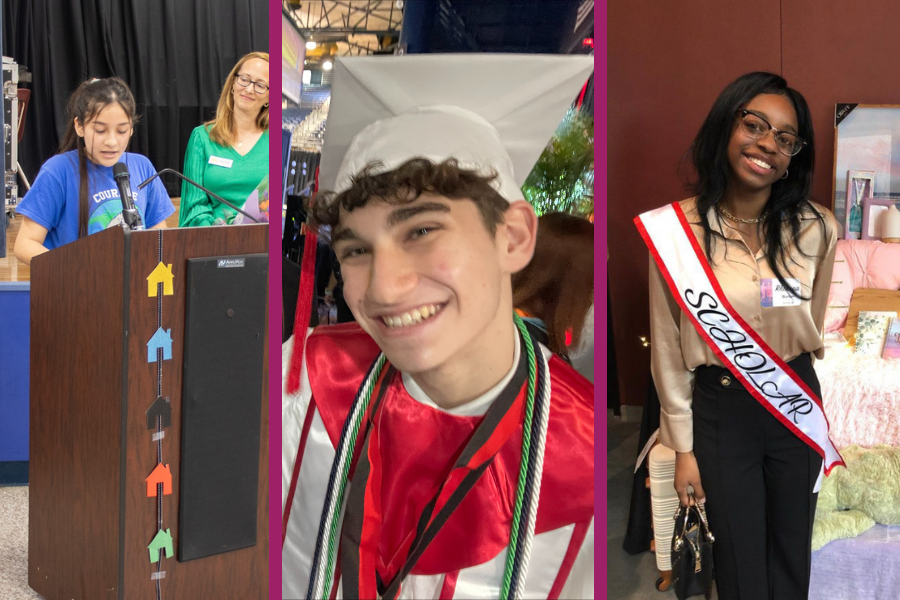According to the Centers for Disease Control and Prevention, Attention Deficit Hyperactivity Disorder (ADHD) was the leading diagnosis among children ages 3 to 17 from 2016 to 2019 at just under 10%. Anxiety was second at 9.4%, behavioral problems 8.9%, and depression at 4.4%.
Among the organizations working with the Northwest Florida Mental Health Task Force is the Children’s Home Society of Florida’s Pensacola chapter. Executive Director Lindsay Cannon says it began with a phone call.
“I was at my desk one day, and Rep. Michelle Salzman called me and said, ‘we need your voice at the table,’” said Cannon. “I was honored and shocked at the same time that we were doing this in our community. It’s definitely been needed. And I resoundingly said, yes, ma’am, I will be there.”
As you probably know, treating kids with mental health issues is 180 degrees from treating adults. The Children’s Home Society has spent the last decade studying and implementing evidence-based practices that are designed for children and adolescents.
“We knew that working with children, especially children with trauma, is really our focus,” said Cannon. “[It] really takes a special skill set to work through that, not only as a clinician recognizing the effects of trauma as well as mental illness that can come along with that.”
When she attended the first task force meetings, Cannon was struck by the “ton of folks” in the room — from adults to children, public and private organizations, and representatives of the city of Pensacola and Escambia County. What also was apparent, was no set “road map” for who was doing what.
“Who was doing prevention work, intervention work, who was doing, like, diversion, who was doing impatient residential and what that looks like,” she said. “So, I think that that was really impactful for all of us to sit in a room and talk about what we’re doing on the spectrum, but also looking at each other like I had no idea you were doing that.”
The ongoing challenge, roughly two-thirds of the way through the task force’s work, has been seeking new solutions to a number of issues while dealing simultaneously with the COVID-19 pandemic.
“There was a real, I think, humbling effect from this to say we have no idea what it’s going to look like after the pandemic, and we need to be prepared,” Cannon said. “And how do we do that?”
Mental health and pediatric specialists are only a part of helping kids. Cannon says parental involvement is vital, along with the Children Home Society’s partnership with the Escambia County School District in placing counselors in the middle schools the past two years.
“And what we realized was there were a lot of children that might have mental health diagnosed issues that really needed some long term counseling,” she said. “But we also had our kids that were experiencing trauma or situations at home that made it hard to participate in schools.”
Another reform is allowing anyone to send in a referral that a kid is having a tough day at school.
“And it would allow us to connect with the parent, of course, get consent. But to really say what’s happening and maybe just offer some short sessions,” Cannon said. “Maybe they just need to resolve one situation, learn some coping skills, or just have someone to talk through whatever was going on. That was a non-educational area for them.”
The Children’s Home Society has also worked with law enforcement to help kids whose environments are leading to mental health issues. Pensacola Police spokesman Mike Wood says officers answering such a call try to find out the situation and the crux of the problem with the juvenile.
“A lot of times they are with family members. There’s somebody that knows what condition they may have,” said Wood. “If it is a mental condition at all and if it is, especially at a school, we try to let the school handle that. And if not, then we have other avenues that we take, such as a mobile response team or taking the child to Lakeview Center to get further treatment.”
It would appear that these days, that there’s an increase in cases involving mental health issues. But Wood says that’s in large part because of the specialized training for law enforcement officers. It’s a different day, compared to how it was 40 to 50 years ago.
“Back in the 70s and 80s, people just were acting up,” said Wood. “They were mean people are bad people. And now that we’re finding out that there’s people that have different conditions, things that make them act that way, and there’s treatment for that, and a lot of times, a lot of it on the scene, how the officer is able to be escalate the situation simply by the tone of his or her voice.”
Outside of the task force, Cannon believes there will be some changes in the child welfare system — including an impact on the traditional, community-based care (CBC) provider called Families First — that has been replaced by the Northwest Florida Health Network.
“They are currently a CBC over in Tallahassee and the Panama City area, and they’re really doing a lot of town halls along our area to ask, what are you guys seeing? What are the trends? And I think really listening to the community has been a really important part of that, listening to foster families,” said Cannon.
One of the goals, added Cannon, is looking for from the task force is connectivity with other providers. She says mental health treatment — especially for kids — should be what she calls a continuum of partnerships which are groups who can share their expertise in the numerous areas of mental health care.
By: Dave Dunwoody
Originally posted by WUWF.










